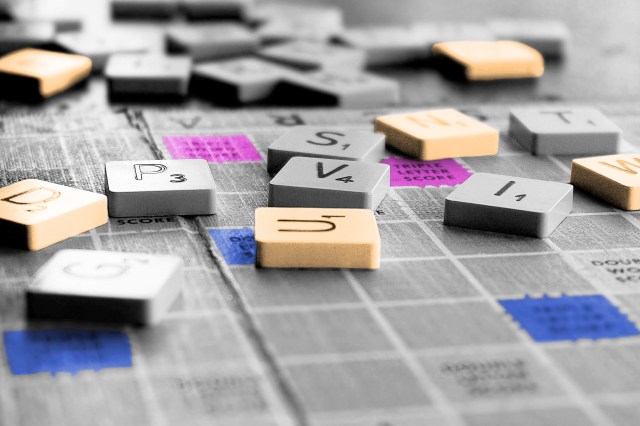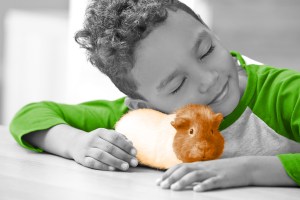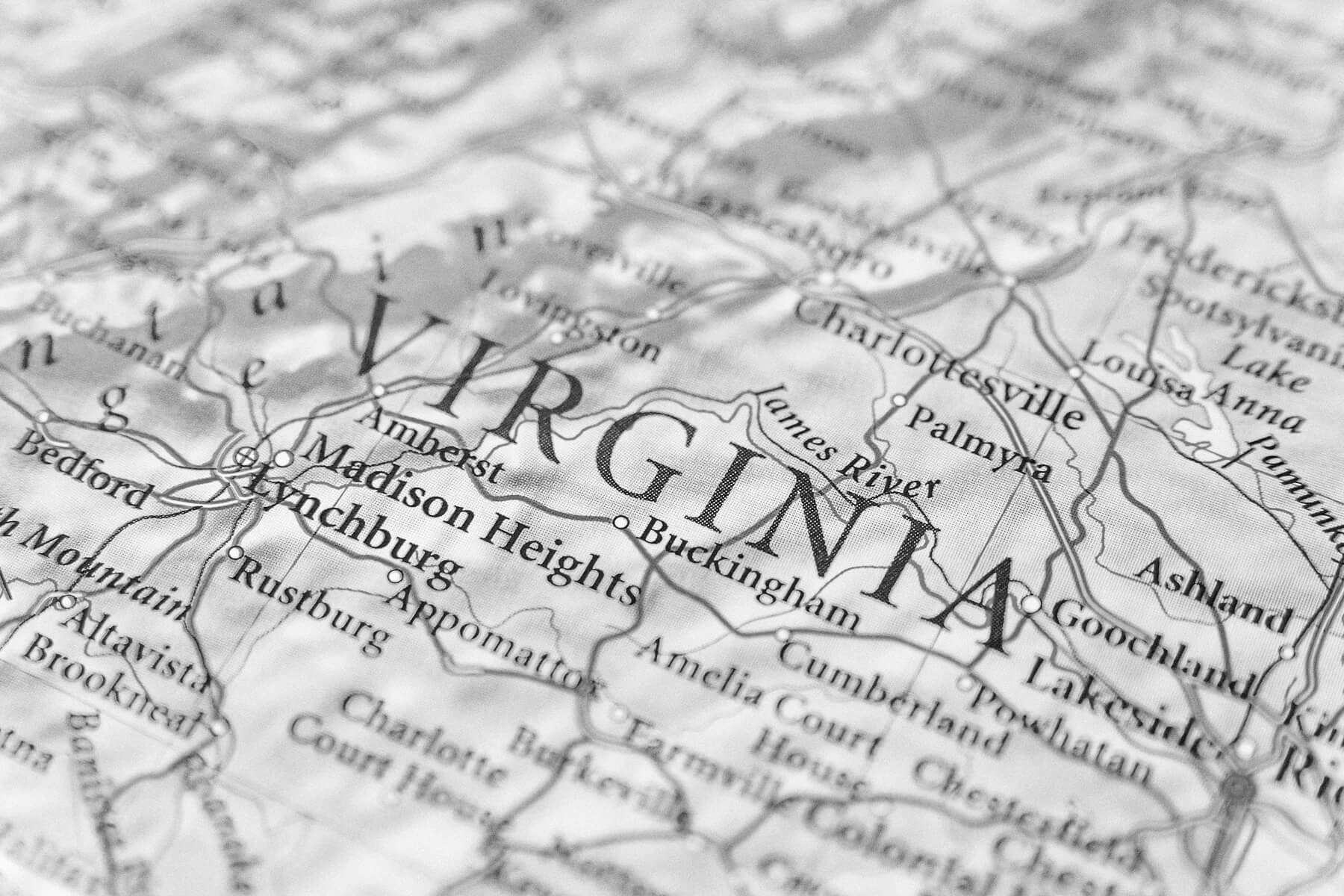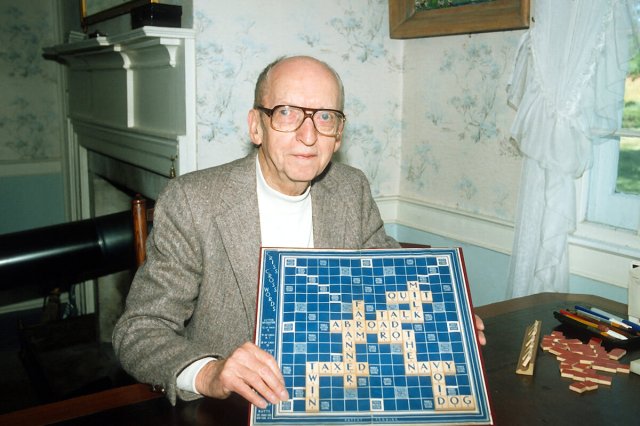
Scrabble Wasn’t Always Called “Scrabble”
During the Great Depression, architect Alfred M. Butts, like many other Americans, found himself unemployed and with some extra free time. He decided that creating a new game could provide a helpful distraction from the bleak economy. In 1931, he wrote a “Study of Games,” an essay analyzing the popularity of three distinct types of games: board games, number games, and letter/word games.
In this treatise, Butts suggested the proper way to play word games was “not with a jumble of letters but with a mixture so proportioned that the individual letters will occur in the same frequency as they do in normal word formation.” This idea was inspired by Edgar Allen Poe’s “The Gold-Bug,” a short story in which a character solves a cipher based on the popularity of English letters.
As a lover of crossword puzzles, Butts sought to create a similar game that incorporated his theories about letter frequency. He first developed Lexiko, a game wherein players selected nine random letter tiles to form words. Using his architectural knowledge, he manufactured each of the 100 tiles by hand.
By August 1934, however, Butts had only sold 84 sets of Lexiko for a net loss of $20.43 (around $480 today). He tinkered with the rules and came up with a new variant called Cross-Cross Words, in which each letter was assigned a point value and each player’s hand decreased from nine to seven. Much like Lekixo, Criss-Cross Words failed to attract interest from any major manufacturer. Fortunately, Butts’ luck was about to change.

Macy’s Helped Popularize Scrabble
While things initially looked bleak for Butts’ word game, that all changed in 1947, when a man named James Brunot reached out to buy the rights. Butts obliged in exchange for royalties, and Brunot got to work on making a few changes. He adjusted the rules ever so slightly, implementing a 50-point bonus for playing all seven tiles in your hand at once, and he also changed the colors of the board to be more reminiscent of those we know today. Brunot finally renamed the game “Scrabble” — a word meaning “to scratch or scrape” according to Dictionary.com — which Brunot chose “out of thin air largely because it was a name that had never been copyrighted,” as the Los Angeles Times reports.
Brunot and his friends began working out of an abandoned Connecticut schoolhouse to produce 12 Scrabble boards every hour. Yet the team only managed to sell around 200 sets per week, resulting in an overall financial loss. Then, according to an unconfirmed but widely believed legend, Brunot got the break of a lifetime in 1952.
In the book Word Freak by Stefan Fatsis, the author details a story in which then-Macy’s chairman Jack I. Straus played a game of Scrabble while on vacation. Straus was delighted by the game and also upset to learn it wasn’t stocked at Macy’s flagship store in New York City. Upon his return from vacation, Straus placed a massive Scrabble order, which triggered other retailers to do the same. In a fortunate turn of events, Brunot found himself producing thousands of Scrabble sets each week. More than one million copies of Scrabble were sold in 1953, and 3.8 million sold the following year.
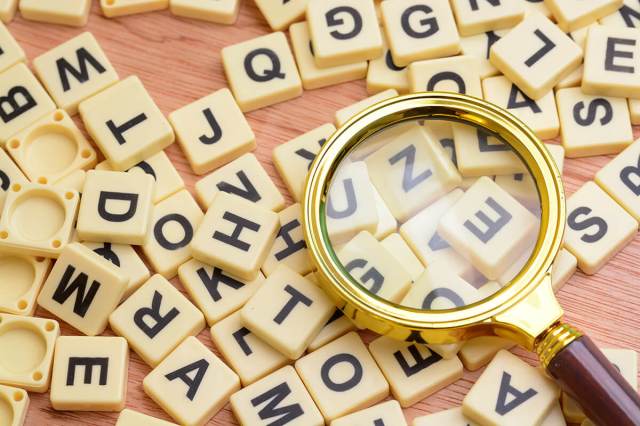
The Longest Scrabble Word Can Score You More Than 1,700 Points
The goal of Scrabble is to net the highest score possible. Amateurs often surpass 100 points per game, while experts average between 330 and 450 points. But in theory, it’s possible to score more than 1,700 points with a single word, though that requires a highly unlikely set of circumstances. The word in question is “Oxyphenbutazone,” the name of an anti-inflammatory drug. As the word is 15 letters long, it’s impossible to have all those tiles in your initial seven-tile hand. This means not only does it require drawing the right set of letters, but also already having placed certain tiles on the board in just the right way.
Scrabble aficionado Dan Stock calculated that playing “OXYPHENBUTAZONE” could score you 1,778 points. According to his strategy, you’d need to be holding the tiles O, Y, P, B, A, Z, and E. You’d also need to have already placed eight specific tiles on certain squares on a standard 15 x 15 Scrabble board: X, H, E, N, U, T, O, and N. The following words also would need to be strategically placed on the board: “PACIFYING,” “ELKS,” “REINTERVIEWED,” “RAINWASHING,” “MELIORATIVE,” “ARFS,” and “JACULATING.”
If you managed to recreate that exact scenario, “OXYPHENBUTAZONE” would score you 1,458 points on its own (thanks to all the word score bonuses). You’d also get 50 points for playing your entire hand and 270 points from creating seven new words running from left to right: “OPACIFYING,” “YELKS,” “PREINTERVIEWED,” “BRAINWASHING,” “AMELIORATIVE,” “ZARFS,” and “EJACULATING.” Although Stock was the first person to calculate this strategy, there have been more recent proposals that can theoretically score you as many as 1,784 or 1,786 points with the right placement of “OXYPHENBUTAZONE.” However, these specific circumstances needed for those high scores have never arisen in actual gameplay to anyone’s knowledge.
More Interesting Reads

There Are More Than 280,000 Words in the Collins Scrabble Dictionary
Collins is the producer of Official SCRABBLE Words — a book used by English-language Scrabble players to determine which words are legal in competitive play. Nearly 2,000 new words were added in 2024, marking the first major update since the 2020 edition, which contained 279,073 words. These newer additions include slang words such as “yeet,” culinary terms such as “birria,” and gaming lingo such as “esport.” This updated version of Official SCRABBLE Words has served as the gold standard for tournaments since January 1, 2025.
While the Collins Scrabble dictionary remains the official source for tournament play, Hasbro — the current manufacturer of Scrabble — works with Merriam-Webster to produce The Official Scrabble Players Dictionary. This text is comparatively limited in what words are considered legal, as there are a little more than 100,000 words included. This book was most recently updated in 2022, with the addition of 500 new words including shorthand terms such as “guac” and playful verbs such as “adulting.”
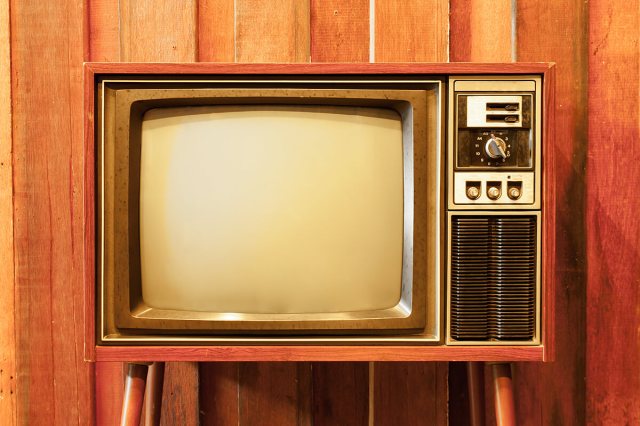
Scrabble Been Turned Into Multiple TV Shows
Starting in 1984, Scrabble was adapted from the dining room table to the small screen in the form of a game show hosted by Chuck Woolery. The TV version revised the board game slightly: Instead of playing words from your hand, the game was played more like a crossword puzzle. In round one, two contestants were given a punny crossword-style clue and a random letter to build on to guess the word. The winner advanced to the Sprint Round, where players guessed words against a clock. This original version of Scrabble earned a Daytime Emmy nomination in 1988 and was briefly revived in 1993 with Woolery reprising his role as host.
A new Scrabble TV show debuted on the CW Network on October 3, 2024, with Raven-Symoné as host. Unlike the 1980s version, this adaptation adheres a bit more closely to the actual rules of Scrabble. In the first round, contestants are tasked with solving anagrams based on a clue. But in the second round, players alternate making actual Scrabble moves as you would in the board game. The difference here, however, is that both contestants use the same set of tiles to make those words. The final round involves the most traditional Scrabble gameplay, where contestants play their personal hand of tiles in hopes of surpassing 200 points to win.
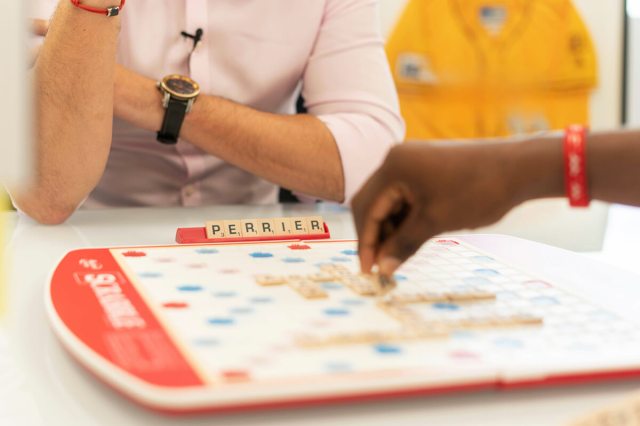
Competitive Scrabble Has Had Some Major Cheating Scandals
The world of competitive Scrabble prides itself on maintaining the integrity of the game, but some participants have let the pressure drive them to cheating. One of the first major accusations of competitive cheating came during the 2011 World Scrabble Championships, where a player was nearly strip-searched to find a missing “G” tile before authorities concluded there wasn’t enough evidence to take things that far. One year later, a player was found to have been concealing blank tiles for use at opportune times. After being confronted, the player admitted to stealing blank tiles and was subsequently ejected from the competition.
In 2017, the competitive Scrabble world was rocked yet again when Allan Simmons, the former U.K. national champion and coauthor of Official Scrabble Words, was banned from competitive play for three years amid accusations of cheating. Multiple competitors claim they saw Simmons peeking into the bag and returning less helpful tiles in exchange for ones that were more valuable. Simmons denied any wrongdoing, but the ban still held.

